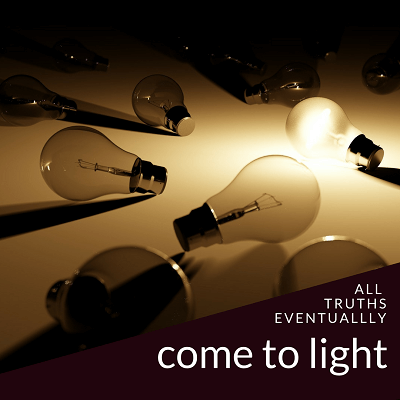
YouTube / iTunes / Spotify / Radio Public / Pocket Casts / Google Podcasts / Breaker / Overcast
Listen to ArtisanEnglish.jp posts & lesson intros here.
Idiom: Come to light
Everyone has secrets, and eventually, they all come to light.
It doesn’t matter who you are, where you are or your walk of life.
A secret is only a secret so long as you don’t tell anyone – not a living soul.
It is no longer a secret once you share your secret with one other person.
It very quickly becomes common knowledge.
Society tends to see light as a sign of knowledge and darkness as a sign of ignorance.
Come to light means exposing, revealing or making something known. This is what terrifies corrupt people.
Some people believe what you don’t know can’t hurt you.
In other words, if you are unaware of something, you won’t be bothered by it.
Corrupt people believe what YOU don’t know can’t hurt THEM.
The idea is that if they keep their illegal activities secret, they can continue them unhindered.
Very often, corrupt governments or businesses try to keep their wrongdoings in darkness.
They never learn that this is a useless tactic.
The truth will always come to light in a democracy, as it should.
In a democracy, it’s the responsibility of robust media to bring things into the light.
English has an expression that goes sunlight is the best disinfectant.
It means that when we can make corruption come to light, we can clean it out of the system.
If you learn anything in life, you should learn that knowledge is power and that once a secret comes to light, it can never be hidden again.
Wrongdoing or corruption can only be challenged and stopped if we know about it.
Let’s make it all come to light, whether corruption, wrongdoing, or something else.
Flesch-Kincaid Readability Test
This post is understandable by someone with at least a 7th-grade education (age 12).
On the Flesch-Kincaid reading-ease test, this post scores 73.
The easier a passage is to read, the higher the score on a scale of 0 – 100.

